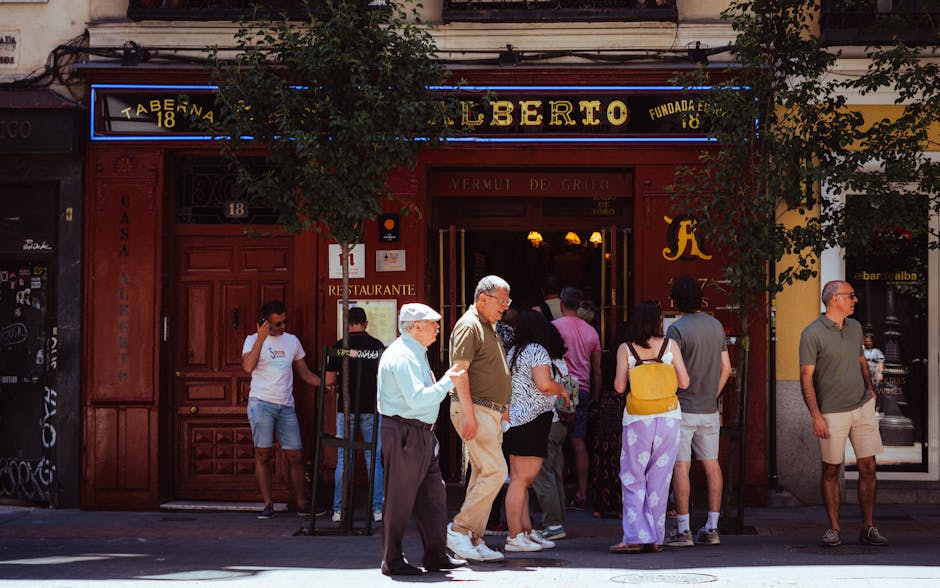Meet the Masters of Spanish Fiction
Have you ever wondered about the magic behind Spanish literature? it’s rich and colorful, filled with stories that transport readers to different worlds. From classic works to modern novels, Spanish authors have a unique way of expressing emotions and ideas. Lets dive into this vibrant landscape and meet some of the masters of Spanish fiction.
Who Are the Great Spanish Authors?

Spanish fiction boasts incredible writers. These authors have shaped literature and continue to inspire people worldwide. Here are a few of the most notable:
- Miguel de Cervantes: Known for “Don Quixote,” a tale about a man who thinks hes a knight.
- Gabriel Garca Mrquez: A master of magic realism, famous for “One Hundred Years of Solitude.”
- Federico Garca Lorca: A poet and playwright who captured the soul of Spain in his works.
- Mario Vargas Llosa: A Nobel Prize winner recognized for his novels like “The Time of the Hero.”
These writers have left a profound impact on literature, each contributing their unique flair. Lets explore their works and what makes them special.
What Makes Cervantes a Literary Giant?

Miguel de Cervantes is often called the father of modern literature. His book “Don Quixote,” published in 1605, is not just a novel; it’s a phenomenon. Cervantes captures the essence of dreaming and the struggles of life.
Imagine a man who believes hes a knight. He sets off on adventures, fighting windmills he thinks are giants. This story teaches us about imagination and reality. Cervantes blends humor and tragedy, showing lifes complexities.
How Did Garca Mrquez Define Magic Realism?

Gabriel Garca Mrquez introduced readers to magic realism, where everyday life blends with the extraordinary. In “One Hundred Years of Solitude,” he tells the story of the Buenda family in the fictional town of Macondo.
The characters experience surreal events, like a woman who ascends to the sky while hanging laundry. This blend of reality and fantasy invites readers to see the world differently. It reflects Latin American culture beautifully.
What Is Lorcas Legacy in Poetry and Theater?

Federico Garca Lorca is one of Spains most celebrated poets and playwrights. His works explore themes of love, death, and identity. In plays like “Blood Wedding,” he captures the passion and tragedy of human relationships.
Lorcas poetry is musical and vivid, often evoking deep emotions. His famous lines resonate with anyone who has experienced love or loss. He reminds us of the beauty and pain inherent in life.
How Did Mario Vargas Llosa Change Literature?
Mario Vargas Llosa, a Nobel Prize winner, is known for his exploration of politics and society. His novel “The Time of the Hero” examines life in a military academy, highlighting the struggles of youth and power dynamics.
Vargas Llosa’s writing is engaging and thought-provoking. He challenges readers to think critically about their surroundings. His works encourage discussions on freedom, democracy, and identity.
What Themes Are Common in Spanish Fiction?
Spanish fiction is rich with themes that resonate globally. Here are some common threads:
- Identity and Belonging: Many authors explore the search for self in their narratives.
- Love and Loss: Relationships, both joyful and painful, are central to many stories.
- Society and Politics: Spanish authors often tackle political issues and societal changes.
- Tradition vs. Modernity: The clash between old customs and new ideas is a frequent theme.
These themes connect with readers regardless of their background. They reflect universal human experiences, making Spanish literature relatable.
Why Is Spanish Fiction Important Today?
Spanish fiction continues to thrive in contemporary literature. Authors like Carlos Ruiz Zafn, known for “The Shadow of the Wind,” and Rosa Montero are captivating new generations. Their works reflect modern issues while maintaining the spirit of Spanish literary tradition.
Moreover, Spanish fiction offers a window into diverse cultures and perspectives. It encourages empathy and understanding among readers worldwide.
What Are Some Must-Read Spanish Novels?
If you’re eager to explore Spanish fiction, here are a few must-read novels:
- “Don Quixote” by Miguel de Cervantes
- “One Hundred Years of Solitude” by Gabriel Garca Mrquez
- “The Shadow of the Wind” by Carlos Ruiz Zafn
- “The Time of the Hero” by Mario Vargas Llosa
Each book offers a unique glimpse into the heart of Spanish storytelling. They are timeless and relevant, reflecting the complexities of life.
How Can You Dive Deeper into Spanish Literature?
Interested in immersing yourself in Spanish literature? Here are some tips:
- Start with translations: If Spanish isn’t your first language, look for translated works.
- Join a book club: Discussing books with others can enhance your understanding and enjoyment.
- Explore cultural contexts: Learn about the historical and social backgrounds of the authors.
- Visit literary festivals: Attend events to meet authors and discover new works.
These steps can enrich your reading experience and deepen your appreciation for Spanish literature.
What Are the Takeaways?
Spanish fiction offers a treasure trove of stories and insights. From the timeless works of Cervantes to the modern narratives of Vargas Llosa, theres something for everyone. These authors explore universal themes that resonate with readers across cultures.
By diving into Spanish literature, youll not only enjoy captivating stories but also gain a deeper understanding of the human experience. So grab a book, and let the journey begin!
If you want to learn more about the impact of Spanish literature, check out this resource from Britannica.



